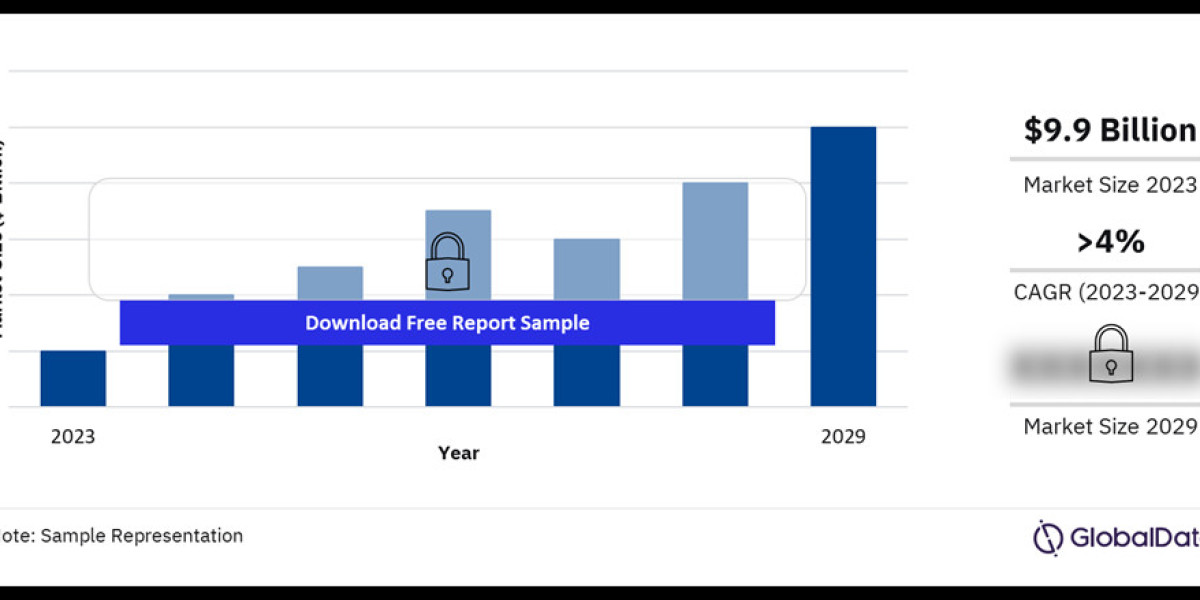The global thermoplastic film market size is estimated at US$ 9.84 billion in 2024 and is predicted to reach US$ 17.54 billion by the end of 2034, advancing at a CAGR of 5.4% from 2024 to 2034.
The thermoplastic film market has seen significant growth over the years, driven by diverse applications across industries like construction, automotive, and packaging. These films, which are known for their ability to be reshaped and molded upon heating, have become a crucial component in modern manufacturing, contributing to lighter, stronger, and more efficient products. As the market expands, sustainability has taken center stage, with increasing interest in bio-based, recyclable, and biodegradable films.
Market Overview
increasing demand across sectors such as automotive, construction, food packaging, and electronics. The films are recognized for their durability, flexibility, and lightweight properties, making them an ideal choice for a wide range of applications.
One key driver of this growth is the ongoing shift towards more sustainable and eco-friendly materials. Consumers, industries, and govesrnments are increasingly prioritizing environmental considerations, pushing manufacturers to innovate and meet these demands. Thermoplastic films are gaining attention for their potential in biodegradable applications and the reduction of plastic waste. Moreover, advancements in technology have led to the development of new materials that offer enhanced performance while being environmentally responsible.
Key Players
Several prominent companies are leading the way in the thermoplastic film market, shaping its future and driving innovation. Major players include:
- DuPont: Known for its high-performance thermoplastic films used in electronics, automotive, and packaging, DuPont continues to push the boundaries of innovation.
- 3M: A leader in the materials sector, 3M is focusing on developing thermoplastic films with enhanced properties, such as UV resistance and strength, to cater to the automotive and construction industries.
- Berry Global Inc.: As a major player in packaging materials, Berry Global is capitalizing on the growing demand for sustainable and recyclable thermoplastic films.
- Teijin Limited: A key player in advanced thermoplastic films, Teijin is exploring new applications in electronics and medical fields.
- Polyonics, Inc.: Specializing in high-performance thermoplastic films for niche applications, Polyonics caters to industries such as aerospace, automotive, and electronics.
These companies are investing heavily in R&D to develop innovative products that offer improved functionality, sustainability, and performance. Strategic partnerships, acquisitions, and product diversification are some of the strategies employed to maintain a competitive edge.
Future Opportunities
The thermoplastic film market is expected to benefit from numerous emerging opportunities in the coming years. The construction sector, for example, is increasingly adopting thermoplastic films for use in insulation, roofing membranes, and flooring materials. The films' ability to offer high performance in harsh environmental conditions makes them an attractive option for the construction of energy-efficient buildings and infrastructure.
The automotive sector is also a significant contributor to the market's growth, with thermoplastic films being used in automotive glazing, interior trims, and exterior components. As the automotive industry shifts toward electric vehicles (EVs), thermoplastic films are poised to play a role in lightweighting, which is essential for improving the energy efficiency and performance of EVs.
Moreover, the increasing focus on eco-friendly and biodegradable alternatives presents a unique opportunity for manufacturers to tap into the growing demand for sustainable products. Innovations in plant-based thermoplastics and the development of recycling processes for thermoplastic films are expected to reshape the market, offering new opportunities for manufacturers committed to sustainability.
Market Analysis
The thermoplastic film market is segmented based on type, application, and region. In terms of type, the market is divided into bioplastic films, PVC films, PET films, and others. Bioplastic films are gaining momentum due to the growing demand for sustainable products, while PVC and PET films dominate the market in sectors like packaging due to their versatility, strength, and barrier properties.
In terms of application, packaging remains the largest sector, driven by the growing demand for flexible and lightweight materials. Food packaging, in particular, has seen a significant rise in demand due to consumer preferences for convenient, sustainable, and safe packaging solutions. The automotive industry is also a key segment, with thermoplastic films being increasingly used for light vehicle parts, decorative elements, and protective films.
Geographically, Asia-Pacific holds the largest market share, with China leading as a manufacturing hub for thermoplastic films. The region's expanding industrial base, growing demand for consumer goods, and rapid urbanization contribute significantly to the market's growth. North America and Europe follow as important markets, especially due to the demand for thermoplastic films in construction, automotive, and packaging.
Recent Updates and Information
The latest developments in the thermoplastic film market include innovations in biodegradable and compostable films. Companies are investing in bio-based feedstocks like corn starch and plant fibers to create thermoplastic films that can be safely decomposed, reducing environmental impact. Additionally, advancements in 3D printing technology have opened up new avenues for customized applications of thermoplastic films in industries like healthcare and aerospace.
Another key update is the increased emphasis on circular economy models. As global sustainability efforts intensify, the thermoplastic film market is increasingly adopting practices like film recycling and closed-loop systems to reduce waste and promote material reuse.
Latest Industry News
In recent news, the thermoplastic film industry has been responding to the growing pressure from both consumers and regulators to offer more sustainable alternatives. For instance, many large packaging companies are transitioning towards using biodegradable thermoplastic films that can be easily recycled or composted. This shift is fueled by the ongoing global push for plastic waste reduction, as well as evolving regulations that require manufacturers to use recyclable materials in their products.
In the automotive sector, manufacturers are experimenting with thermoplastic films for enhanced aesthetic appeal and improved safety features. These films are being used for scratch-resistant coatings and to provide a glossy finish to vehicle exteriors. Additionally, lightweight thermoplastic films are becoming a popular choice for EV manufacturers, helping to reduce the overall weight of the vehicles and enhance their efficiency.
Conclusion
The thermoplastic film market is poised for strong growth, driven by diverse applications, innovation, and a strong focus on sustainability. As key players continue to innovate and explore new opportunities in biodegradable films, packaging, automotive, and construction, the future of this market looks promising. While challenges remain, such as the need for efficient recycling methods and the high cost of some bio-based alternatives, the ongoing advancements in material science and manufacturing processes provide significant potential for long-term success in the thermoplastic film industry
Read more-
The drum pulper market is estimated to be worth US$ 626.31 million in 2023 and hit US$ 972.64 million by 2033. Over the projection period, the drum pulper industry is expected to grow at a CAGR of 4.5%.
The global remote irrigation controllers market is valued at US$ 702.29 million in 2023 and is expected to reach US$ 2.38 billion by 2033, expanding at a CAGR of 13% over the forecast period (2023 to 2033).
The global water jetting camera market is anticipated to be worth US$ 3.67 billion in 2023 and US$ 6.39 billion by 2033. The market is predicted to increase at a CAGR of 5.7% over the forecast period.
Based on the analysis by Fact.MR, the global radiation-cured products market is estimated to be valued at US$ 2.4 billion in 2023 and it is expected to grow at a CAGR of 6.5% to reach US$ 4.5 billion by the end of 2033.
Based on the analysis by Fact.MR, the global fertilizer fillers market is valued to be US$ 1,117.9 million in 2023 and it is anticipated to grow at a CAGR of 5.0% to reach US$ 1,821.0 million by the end of 2033.
Global sales of bunker rakes are estimated at US$ 156.56 million in 2023 and are predicted to climb to US$ 272.54 million by the end of 2033. The global bunker rakes market is forecasted by Fact.MR to exhibit expansion at 5.7% CAGR over the next ten years.









